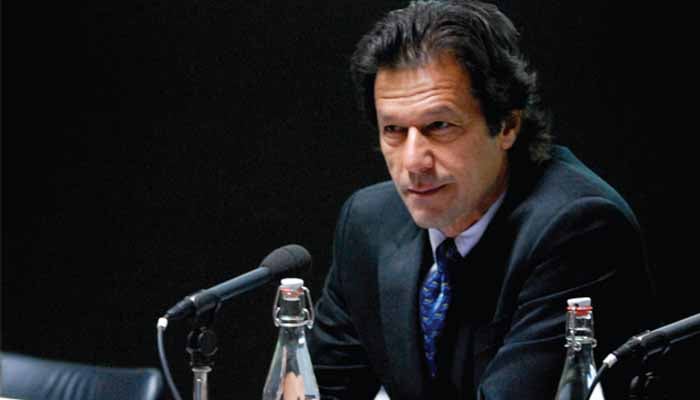Will Imran Khan change Pakistan's stance toward Israel?
Much has been written in national and international press about Imran Khan's address to the nation since his party won majority in the parliament in July 25 election.
Much has been written in national and international press about Imran Khan's address to the nation since his party won majority in the parliament in the July 25 election.
Media outlets at home and abroad ran editorials and analyses on what Khan's victory means for his country and the world at large.
The part of his first address that was discussed in international media was Pakistan's foreign policy and his plans to foster relations with other nations, especially neighbouring countries.
Although Pakistan does not recognise Israel, the media in the Jewish state has also reported developments in Pakistan since the July 25 elections.
In an analysis published in the Times of Israel, an author questioned whether Pakistan's new leader will be any different from his predecessors when it comes to the Islamic Republic's relations with the Jewish state.
Written by Charles Dunst, the article gave a complete profile of the Pakistani leader, highlighting his career as a sportsman and a politician.
The author also discussed the allegations Khan has long faced about his connection to the Jewish lobby after his marriage to Jemima Khan.
The author thinks Khan is less critical of Israel than many other leaders in the Muslim world.
The analyst interpreted one of Khan's tweets from 2011 as an apparent repudiation of anti-semitism.
“Just as questioning the holocaust is painful to the Jews, & we respect this, so abuse of the Prophet (PBUH) is even more painful to Muslims,” the author referred to this tweet of Khan, which he had sent out to condemn blasphemy.
Alluding to Khushid Kasuri's 2005 meeting with Israeli counterpart Silvan Shalom in Istanbul, the writer questioned whether Khan would build on his relations or follow Saudi Arabia, which seems to have softened its stance towards Tel Aviv.
The analyst also quotes Hussain Haqqani, the former Pakistani ambassador to Washington, saying, “His [Imran Khan's] political stance has been anti-Israel. Given his own Islamic-nationalist rhetoric, I do not see Imran Khan as the man who would reach out to Israel on behalf of Pakistan. But miracles can always happen".
Arguing that Israel is open to establishing relations with Pakistan, the author presented Israeli Prime Minister Benjamin Netanyahu's speech in which he rebuked claims that his country's relationship with India is in any way a threat to Pakistan.
“We are not enemies of Pakistan and Pakistan should not be our enemy either,” Netanyahu told reporters at an event in India last year.
“Negative perceptions of Israel by some in Pakistan, and Israel’s close partnership with India, may impose some limits on what is possible,” he cautioned. “But that doesn’t mean quiet ties based on security cooperation or access to Israeli technology are out of the question.
“They can provide important mutual benefits even before establishing official relations is possible," Daniel Shapiro, the former US ambassador to Israel, is reported as having said.
-
Security forces gun down 30 terrorists in multiple IBOs in KP: ISPR
-
MQM-P calls for new province in Sindh
-
US report validates Pakistan military edge over India: PM
-
Banned TTP poses serious threat to Pakistan security: UNSC panel
-
CM Afridi clarifies remarks on by-poll after ECP requests army deployment
-
Dubai sees 3.2m Pakistani passengers in 2025 as airport sets new milestone
-
Security forces kill 23 Indian proxy terrorists in KP's Kurram
-
Pakistan to construct island to boost oil exploration: report












